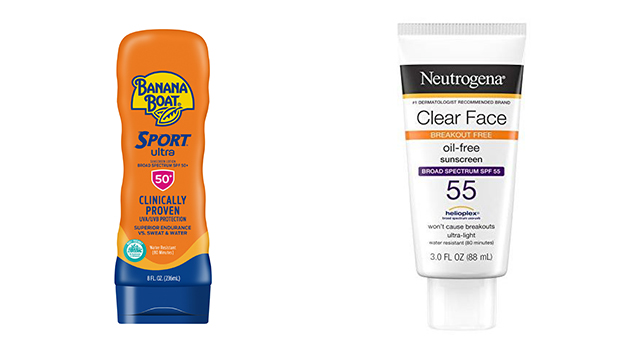- Smart Watch Payments and Digital Wallets in the Philippines - June 8, 2023
- Front-Load vs. Top-Load Washing Machines - May 25, 2023
- Pros And Cons Of Wireless Charging Power Banks - May 10, 2023
Last Updated on
Wearing sunscreen all year round is a must, but when on site work returns for most people you’ll likely spend more time outdoors and show your skin. What type should I get? There are some basic things that need to be met like SPF 30 with broad-spectrum protection–the rest comes down how it fits into personal preference. So consider this buying guide about the kind of sunblock product which can actually keep up with those needs—one designed specifically according their lifestyle preferences!
Check the SPF
SPF 100, compared with the lower SPFs (50), really does make a difference in protecting your skin from damage and burns. For a real difference in protecting your skin against damage and burns, at minimum you’ll want SPF 30. Higher SPF lotions tend to be stickier so some people don’t like them as much but it’s worth that extra protection for beach days even if they’re not used daily.
UVA and UVB Protection
The best way to avoid sunburn and skin cancer is by using a sunscreen with “broad spectrum” ingredients. The two most common UVA-Coverage Agents in these products are avobenzone, which blocks UV rays that cause aging effects like wrinkles; zinc oxide – this mineral filters harmful blue light before it penetrates your outermost layer of cells
Skin Type
Oily skinned people will want to use a sunscreen with ingredients like silica or isododecane, which can absorb excess oil. Those who have sensitive skins should look for hypoallergenic and fragrance-free products as well mineral sunscreens that don’t contain alcohols or preservatives; titanium dioxide might be an option if you’re looking for extra protection because it blocks UV rays better than zinc oxide does in some cases
Make Up Friendly
Your foundation may contain SPF, but you’re probably not wearing enough of it to get adequate protection from the summer sun. Dermatologists say that a nickel-sized amount should be plenty for your face and neck. To protect this specific part on top don’t forget about layering! A traditional sunscreen underneath will ensure complete coverage – lightweight formulas are best as too thick or greasy ones might feel heavy when applied directly onto skin.
Physical vs Chemical Compositions.
The idea that physical sunscreens create a protective barrier on the surface of your skin to reflect and scatter UV rays away from you has been debunked. Physical sunscreen actually absorbs up 95% when placed overtop but not in direct contact, so it’s important for those who use them only as an extra layer or two under their make-up application
All the remaining active ingredients that aren’t zinc or titanium are chemical sunscreens. These chemicals absorb into your skin like lotion instead of forming a barrier on top, which means they cause a reaction with UV light in order to convert it and make heat so as not be able harm you.
Waterproof
If you want a sunscreen that will keep your skin protected against the harmful sun rays, look for water resistant formulas. These types of products can withstand being in pools, oceans, and even but don’t last very long so make sure to re-apply every 80 minutes or after heavy exercising sessions.
Body vs Face Sunscreen
Face or body sunscreen usually comes in two different bottle sizes – small and large. For the most part, you only need one of these bottles so don’t buy another just to do double duty! If you don’t want to buy a separate bottle for your face, there are some great combo products that can be used on all parts of the body. That said, many people prefer lightweight and non-greasy sunscreens formulated specifically for their faces as they often cause less breakouts or irritation than other types of sunscreen do in this area – which is why we recommend trying it out before committing fully!
Sunscreen is not the only way to protect yourself from sunburn, but it’s one of the most important. That’s why a little planning goes far in avoiding painful skin damage and wrinkles later on down the road! Protect yourself from the sun’s rays with a variety of clothing and accessories. More coverage means you are better protected against burning, although this may also lead to an overheating which could be dangerous in hotter weather conditions or if swimming later on during summertime

